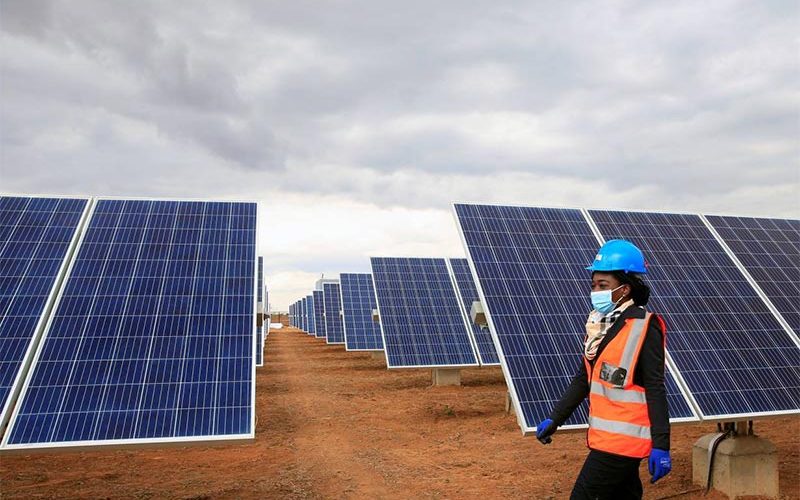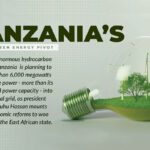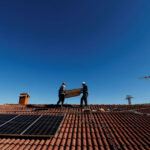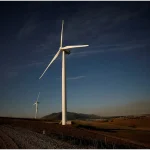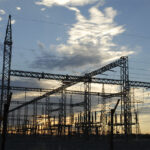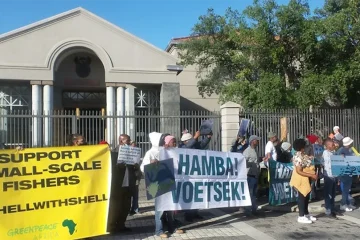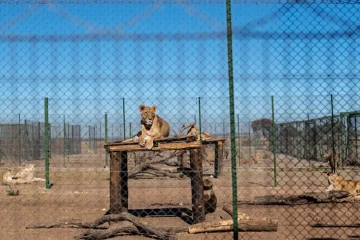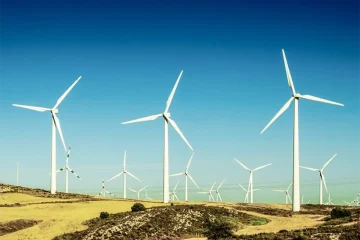SETH ONYANGO, BIRD
SOUTH Africa, Ethiopia, Egypt, Morocco and Kenya are building clean energy economies that could rake in billions of dollars in investment over the next decade.
All have ramped up investments in renewable energy infrastructure to decarbonise their industries and run their economies with clean fuel.
Some smaller states have also set ambitious energy transition targets from fossils, such as Rwanda’s target of generating 60 per cent renewable energy by 2030.
Data show there is a huge incentive to decarbonise.
In June last year, finance giant, Goldman Sachs projected that spending for renewable power projects in 2021, will surpass upstream oil and gas for the first time in history.
It expects the clean energy sector to reach a 16 trillion US dollar investment volume through 2030, eclipsing fossil fuels.
This week at the UNGA, US President Joe Biden announced America would quadruple its international climate finance to 11.4 billion US dollars by 2024 to help developing nations fend off the worst impacts of global warming.
“This will make the United States a leader in public climate finance,” he said.
Ergo, countries in Africa with a robust clean energy infrastructure could gobble up billions from that share and make the continent one of the biggest hubs for renewables.
African Development Bank (AfDB) argues that it is a “no brainier” as the continent has the potential to lead the world in scaling up and generating renewable energy.
Its figures show the continent has an almost unlimited solar potential (at least 10 TW), abundant hydro (350 GW), wind (110 GW), and geothermal energy sources (15 GW).
The International Renewable Energy Agency (IRENA) estimates clean energy capacity in Africa could reach 310 GW by 2030, putting it at the forefront of renewable energy generation globally.
But opinion is divided on whether Africa can afford to strand its fossil fuels. New discoveries of oil and gas signal possible fortunes – but at what cost?
The AfDB notes that a “renewable energy revolution could unlock Africa’s social and economic development. However, a change in the political economy is needed to move away from the current preoccupation with big power projects, centralised electricity production and a heavy reliance on coal.”
Suppliers of fossil fuels in Africa are also preparing for a lower-carbon future as the continent pivots towards a cleaner energy economy.
But they are hoping this will not be at the expense of the abundant coal, oil and gas that is buried beneath the surface of the continent.
OPEC Secretary-General Mohammed Barkindo and his counterpart at the African Petroleum Producers Organisation (APPO) Omar Farouk Ibrahim insist that only a dual carriageway will propel Africa’s energy agenda –– where fossils and renewables are ingredients in the continent’s energy cocktail.
At a meeting in Brazzaville, Congo last month, the two industry captains pushed for an adaptive and market-driven approach in the energy transition, where hydrocarbons are not excluded or eradicated.
“We will not allow billions of barrels of oil to go to waste and we will not be bamboozled into projects that we don’t need – ones which will not address energy poverty. We need to sit down and have an honest conversation about the energy transition,” Ibrahim said, sentiments that were echoed by Barkindo.
“We in OPEC also categorically reject the narrative that the energy transition is from hydrocarbons to renewables because this narrative is completely misrepresenting science,” Barkindo reiterated.
“We believe that all sources of energy are required today and in the future to meet the challenges of climate change and future energy demand. According to our World Oil Outlook at OPEC, energy demand will grow by a minimum of 25 per cent between now and 2045. Therefore, we have to promote all energy resources in an efficient and sustainable manner. Our industry, therefore, is part of the solution to climate change.”
Africa contributed just 4 per cent of greenhouse gas emissions between 1990 and 2017 despite constituting 17 per cent of the world’s population, making it the least polluter.
It is on that premise that stakeholders in the continent’s petroleum industry are pushing back against a blind and hasty transition from fossils.
OPEC and APPO argue that the global south and especially Africa should be given leeway to power their economies with hydrocarbons just like the West did.
Petroleum firms argue that industrialised countries were able to overcome others in wealth and power by tapping into fossil fuels hence Africa should do so too.
International climate policy expert Mohamed Adow noted that UK for decades funded and profited from the expansion of fossils in Africa.
“While it was reaping the benefits of decarbonising its own energy system it was shackling poorer nations with dirty fossil fuel infrastructure, which the world must now move away from,” he pointed out in an Op-ed in the Independent.
He further argues that if rich polluters want Africa to leapfrog the dirty development path and harness clean energy –– then it must pay for it. But the bill is huge.
In July this year, South Africa’s national power utility firm, Eskom Holdings SOC Ltd, put forward a 10 billion US dollars plan to multilateral banks and agencies to help it transit to renewables.
Eskom emits nearly 213 million tonnes of CO2 equivalent a year, making it one of the biggest fossil fuels emitters in Africa.
With the cost too high and nobody willing to pay, OPEC and APPO argue that Africa’s energy transition should be gradual.
But the oil and gas industry is facing growing opposition from a public greatly concerned with the environmental impact of fossil fuels and ever-more sceptical investors.
With 16 trillion dollars in expected investment in the next decade, the case for decarbonising the continent is stronger.
Countries in Africa are already positioning themselves as recipients of some of that huge energy spending.
Gradually, African countries are turning into frontrunners in the global clean energy transition, with South Africa and Morocco technological innovation with hydrogen, while many countries on the continent are making or enabling large investments in solar PV and wind generation.
Notably, Ethiopia recently announced a 40 billion dollars investment in power generation, the bulk of which will be channelled towards green energy.

